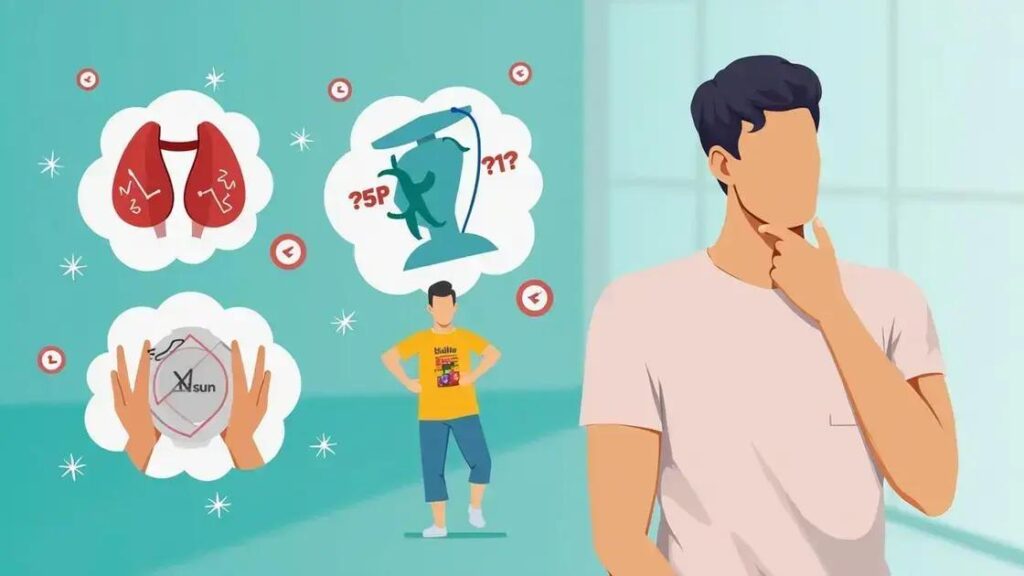Erectile dysfunction can be linked to thyroid issues, as both conditions can lead to hormonal imbalances affecting sexual health. Symptoms of thyroid dysfunction include fatigue, weight changes, and mood swings, which may contribute to erectile problems. Diagnosing these issues involves consulting a healthcare provider, physical exams, and blood tests. Treatment options for erectile dysfunction range from medications to therapy, while thyroid issues may require hormone replacement therapy or other medications. Addressing both conditions together is essential for improving overall health.
Erectile dysfunction can be a complex issue, affecting many men worldwide. Surprisingly, can erectile dysfunction be linked to thyroid issues? This is a critical question as thyroid hormones play a significant role in overall health, including sexual health. In this article, we will explore the connection, symptoms of thyroid problems, and the importance of diagnosis and treatment.
Understanding Erectile Dysfunction
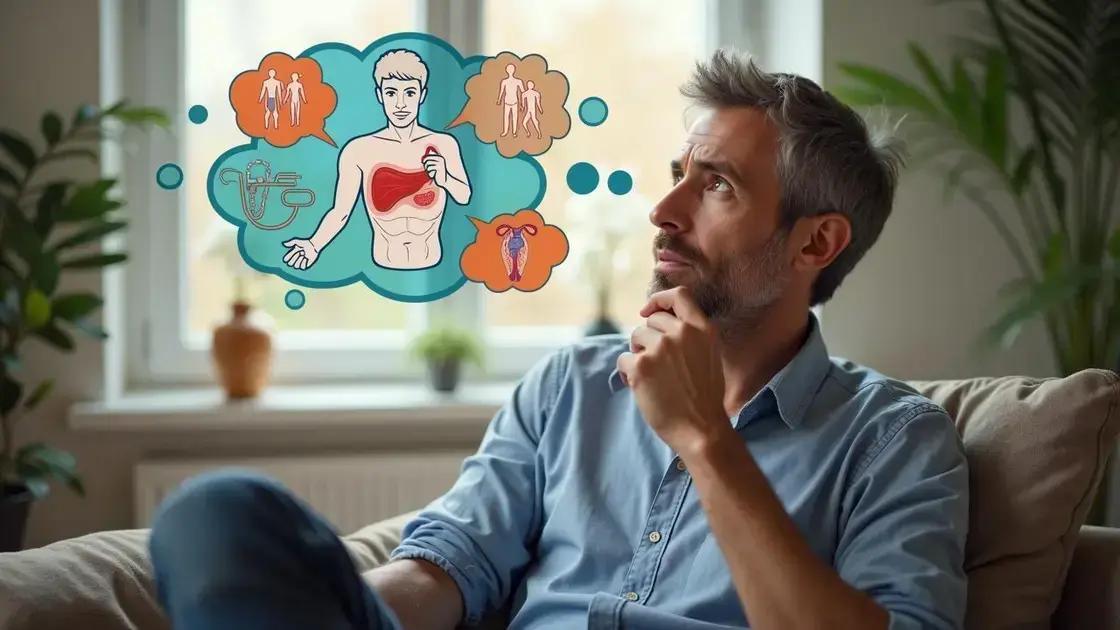
Erectile dysfunction (ED) is a condition that affects many men, often causing emotional distress and impacting relationships. It refers to the inability to achieve or maintain an erection sufficient for satisfactory sexual performance. Various factors can lead to ED, including physical and psychological issues.
Physical Causes of Erectile Dysfunction
Physical causes are often related to health conditions such as diabetes, hypertension, and heart disease. These conditions can damage blood vessels and reduce blood flow to the penis, making it difficult to achieve an erection. Hormonal imbalances, such as low testosterone levels, can also contribute to ED.
Psychological Factors
Psychological factors encompass stress, anxiety, depression, and relationship issues. Performance anxiety can lead to a cycle of anxiety and dysfunction, compounding the problem. Men may also find that emotional challenges affect their sexual health, creating a complex relationship between mental well-being and erectile function.
Impact on Quality of Life
The effects of erectile dysfunction extend beyond sexual health; men may experience frustration, low self-esteem, and even depression. Open communication with partners and seeking help can be vital in addressing these challenges. It is important to remember that ED is a common issue and seeking medical advice can help manage it effectively.
Understanding the different causes of erectile dysfunction is crucial in addressing the condition. Gaining insight into how physical and psychological factors interact can guide men to seek appropriate treatment and support.
The Role of Thyroid Hormones
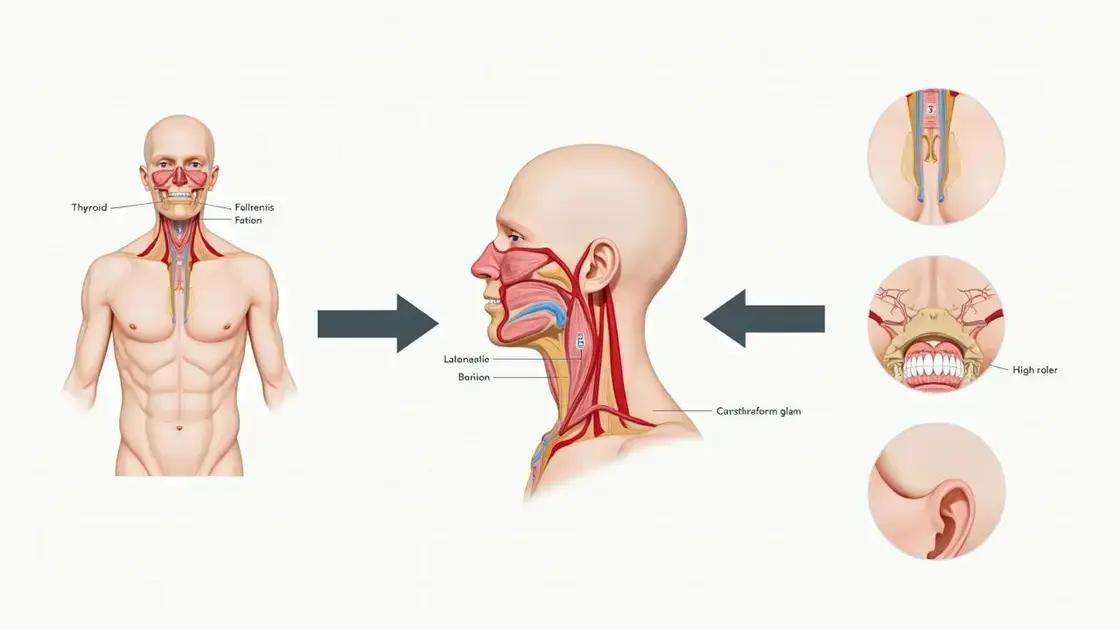
Thyroid hormones play a crucial role in many bodily functions, including metabolism, energy levels, and growth. These hormones are produced by the thyroid gland, which is located in the neck and regulates various physiological processes in the body. Thyroid hormones can also affect sexual health, including erectile function.
Types of Thyroid Hormones
There are two primary thyroid hormones: thyroxine (T4) and triiodothyronine (T3). T4 is converted into the more active T3 in the body. Both of these hormones help regulate the metabolic rate, heart rate, and even body temperature. An imbalance in these hormones can lead to health issues, including ED.
Thyroid Hormones and Sexual Function
Research suggests that low levels of thyroid hormones can lead to various sexual dysfunctions, including reduced libido and erectile dysfunction. Hypothyroidism, or an underactive thyroid, can lead to insufficient hormone production, which may contribute to ED. On the other hand, hyperthyroidism, or an overactive thyroid, can also impact sexual function, leading to more significant fluctuations in energy levels and sexual desire.
How Thyroid Hormones Affect Blood Flow
Thyroid hormones regulate blood circulation in the body. Adequate regulation is necessary for achieving and maintaining an erection. When there is an imbalance, it can result in poor cardiovascular health, which is a significant risk factor for erectile dysfunction.
Furthermore, thyroid hormones also have a role in maintaining the health of the penile tissue, which is essential for proper erectile function. Thus, maintaining healthy thyroid hormone levels is important for overall sexual health.
Symptoms of Thyroid Issues
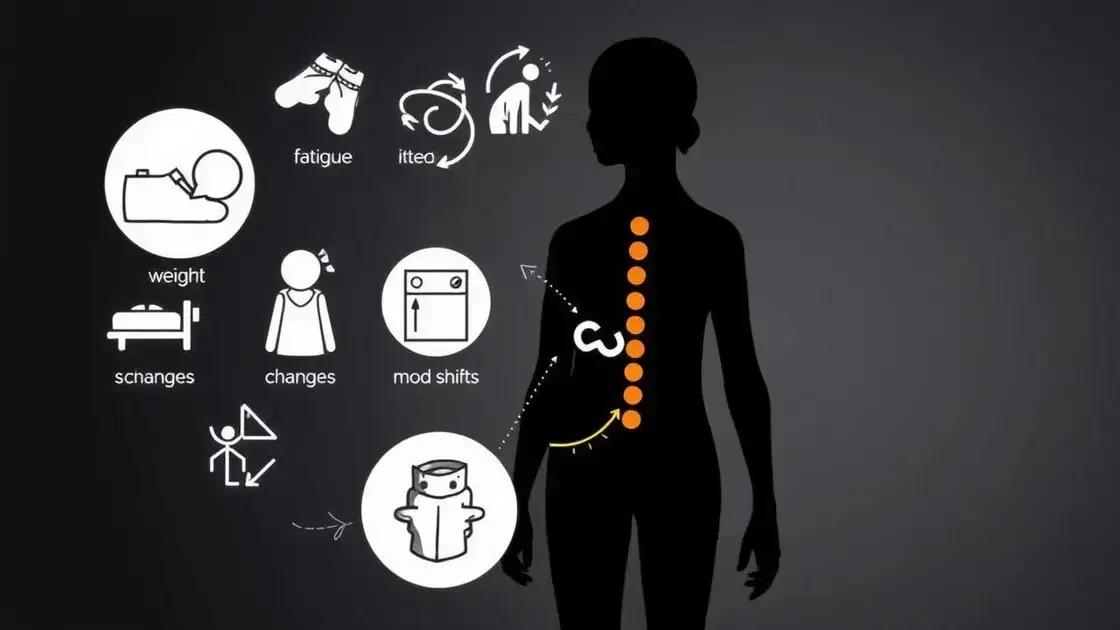
Symptoms of thyroid issues can vary widely depending on whether a person has hypothyroidism (underactive thyroid) or hyperthyroidism (overactive thyroid). Recognizing these symptoms is essential for identifying potential thyroid problems that may be linked to erectile dysfunction.
Common Symptoms of Hypothyroidism
Hypothyroidism often presents with fatigue, weight gain, and sensitivity to cold. Other symptoms include:
- Dry skin and hair
- Constipation
- Muscle weakness
- Depression
- Memory problems
For men, low testosterone levels due to hypothyroidism can lead to reduced libido and erectile dysfunction due to hormonal imbalances.
Common Symptoms of Hyperthyroidism
Hyperthyroidism can cause symptoms that are quite different. Individuals may experience:
- Weight loss despite increased appetite
- Increased sweating
- Rapid heartbeat
- Insomnia
- Nervousness or anxiety
In some cases, hyperthyroidism can also lead to sexual dysfunction and decreased sexual desire, affecting overall sexual health.
Other Signs to Watch For
Both conditions track closely with changes in mood, energy levels, and overall well-being. Men experiencing symptoms such as unexplained fatigue, mood changes, or weight fluctuations should consider consulting a healthcare professional for proper evaluation.
Recognizing these symptoms can be vital. Thyroid dysfunction may contribute to erectile dysfunction and understanding the connections between these health issues can provide deeper insights into the effectiveness of treatment.
How to Diagnose Thyroid Problems
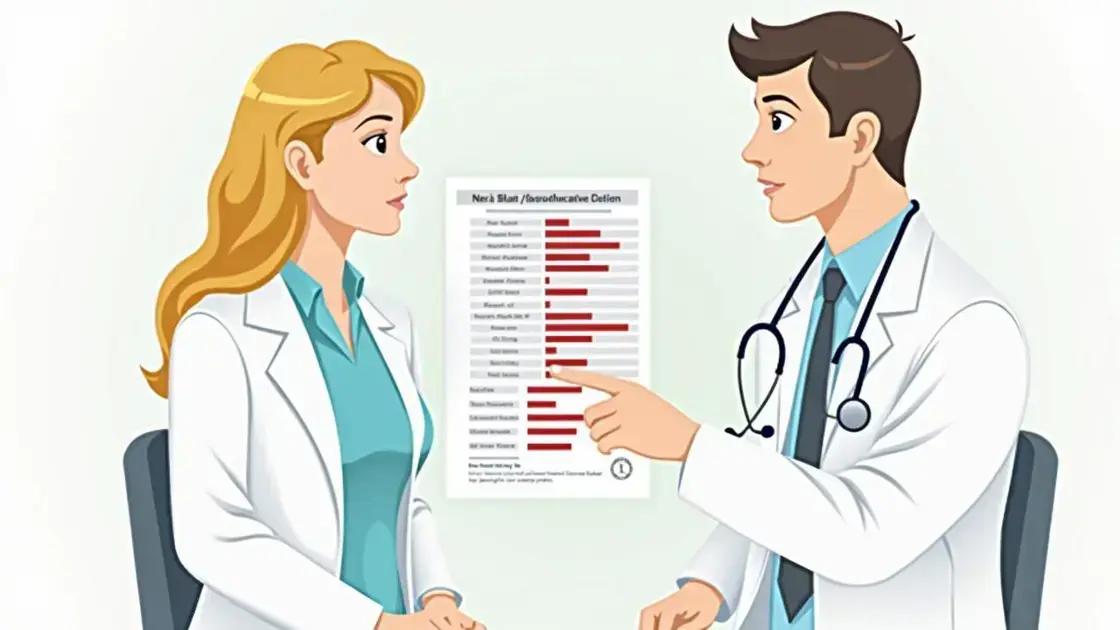
Diagnosing thyroid problems involves a combination of symptoms review, physical exams, and laboratory tests. It’s important for men experiencing issues like erectile dysfunction to explore whether thyroid dysfunction might be a contributing factor.
Step 1: Consult a Healthcare Provider
The first step in diagnosing thyroid issues is to consult a healthcare provider. They will discuss symptoms and medical history. During this appointment, it’s important to mention any sexual health concerns, as they may relate to thyroid function.
Step 2: Physical Examination
A healthcare provider will often conduct a physical examination. They may check for signs such as:
- Changes in weight
- Swelling in the neck (goiter)
- Skin texture changes
- Heart rate irregularities
These factors can provide vital information on whether your thyroid may be underactive or overactive.
Step 3: Blood Tests
Blood tests are the most common method to diagnose thyroid disorders. These tests typically measure:
- Thyroid-stimulating hormone (TSH)
- Free thyroxine (T4)
- Free triiodothyronine (T3)
Elevated TSH levels can indicate hypothyroidism, while low levels can suggest hyperthyroidism. Checking the levels of T3 and T4 aids in understanding the thyroid’s functional capacity.
Step 4: Additional Tests
If initial tests indicate thyroid issues, further testing may be needed. This can include:
- Thyroid antibody tests
- Ultrasound of the thyroid
- Radioactive iodine uptake test
These tests help clarify the diagnosis and develop an effective treatment plan.
Step 5: Monitor and Follow-Up
Once diagnosed, regular monitoring is key. Follow-up appointments with your healthcare provider will help ensure treatment effectiveness and adjust if necessary. Recognizing thyroid problems early can significantly affect overall health and sexual function.
Treatment Options for Both Conditions
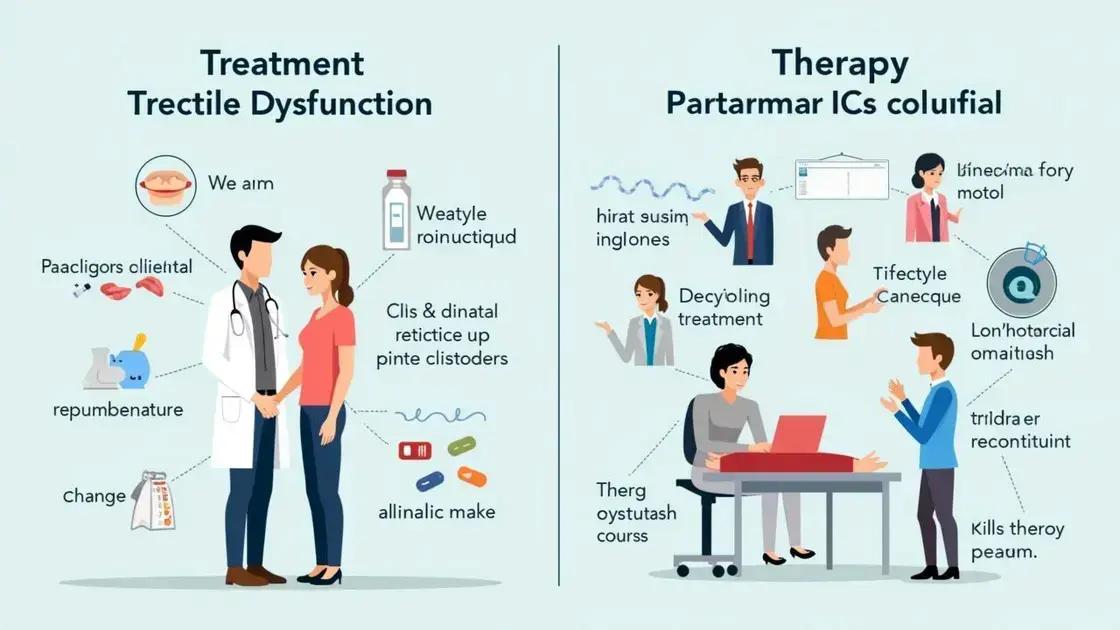
Treating erectile dysfunction (ED) and thyroid issues effectively requires a multifaceted approach. Both conditions can impact a man’s quality of life, so understanding the available treatment options is crucial.
Treatment for Erectile Dysfunction
There are several treatment options available for erectile dysfunction:
- Oral Medications: Drugs like sildenafil (Viagra), tadalafil (Cialis), and vardenafil (Levitra) are common treatments that enhance blood flow to the penis, helping achieve an erection.
- Therapies: Counseling and psychotherapy can assist in managing any psychological aspects contributing to ED, such as anxiety or depression.
- Pumped Devices: Vacuum erection devices may help increase blood flow, resulting in an erection. These devices are safe and effective when used correctly.
- Hormonal Treatments: If low testosterone levels are present, hormone replacement therapy can improve sexual desire and erectile function.
- Surgery: In some cases, surgical options, such as penile implants, may be considered when other treatments fail.
Treatment for Thyroid Issues
Treating thyroid disorders generally involves
- Medications: For hypothyroidism, synthetic hormones like levothyroxine are typically prescribed. For hyperthyroidism, options include antithyroid medications, radioactive iodine, or beta-blockers to manage symptoms.
- Regular Monitoring: Routine follow-up appointments are necessary to adjust medication dosages and monitor hormone levels.
- Dietary Changes: A well-balanced diet may help support overall thyroid health. Consulting a nutritionist can provide specific dietary recommendations.
Addressing Both Conditions Simultaneously
It is important to address both conditions together since treating thyroid issues may help alleviate associated erectile dysfunction. Doctors often create a comprehensive treatment plan that considers the interrelationship between thyroid health and erectile function.
Regular communication with healthcare providers and reassessing treatment effectiveness can significantly improve both sexual health and thyroid function.
Understanding the Connection Between Erectile Dysfunction and Thyroid Issues
Recognizing the link between erectile dysfunction and thyroid problems is essential for effective health management. As we’ve explored, both conditions can significantly impact a man’s quality of life, yet they are often interconnected.
By understanding the symptoms, treatments, and the role that thyroid hormones play, individuals can take proactive steps in seeking diagnosis and treatment. Addressing both erectile dysfunction and thyroid issues together can lead to improved overall well-being and restore sexual health.
It is crucial to maintain open communication with healthcare providers to explore all available treatment options. Empathy and support from partners and healthcare professionals can aid in navigating these challenges.
Taking charge of one’s health can lead to positive outcomes, highlighting the importance of awareness, education, and timely intervention in managing these conditions.
FAQ – Frequently Asked Questions About Erectile Dysfunction and Thyroid Issues
Can erectile dysfunction be caused by thyroid problems?
Yes, thyroid issues can lead to hormonal imbalances that may result in erectile dysfunction.
What are the common symptoms of thyroid dysfunction?
Common symptoms include fatigue, weight changes, mood swings, and sexual dysfunction, among others.
How is thyroid dysfunction diagnosed?
Diagnosis typically involves a combination of symptom evaluation, physical examination, and blood tests to assess hormone levels.
What treatment options are available for erectile dysfunction?
Treatment options include oral medications, therapy, vacuum devices, hormonal treatments, and in some cases, surgery.
How can thyroid issues be treated?
Thyroid issues are often treated with medications, regular monitoring, and sometimes dietary changes.
Is it important to address both erectile dysfunction and thyroid issues simultaneously?
Yes, managing both conditions together can improve overall health and effectiveness of treatments.

